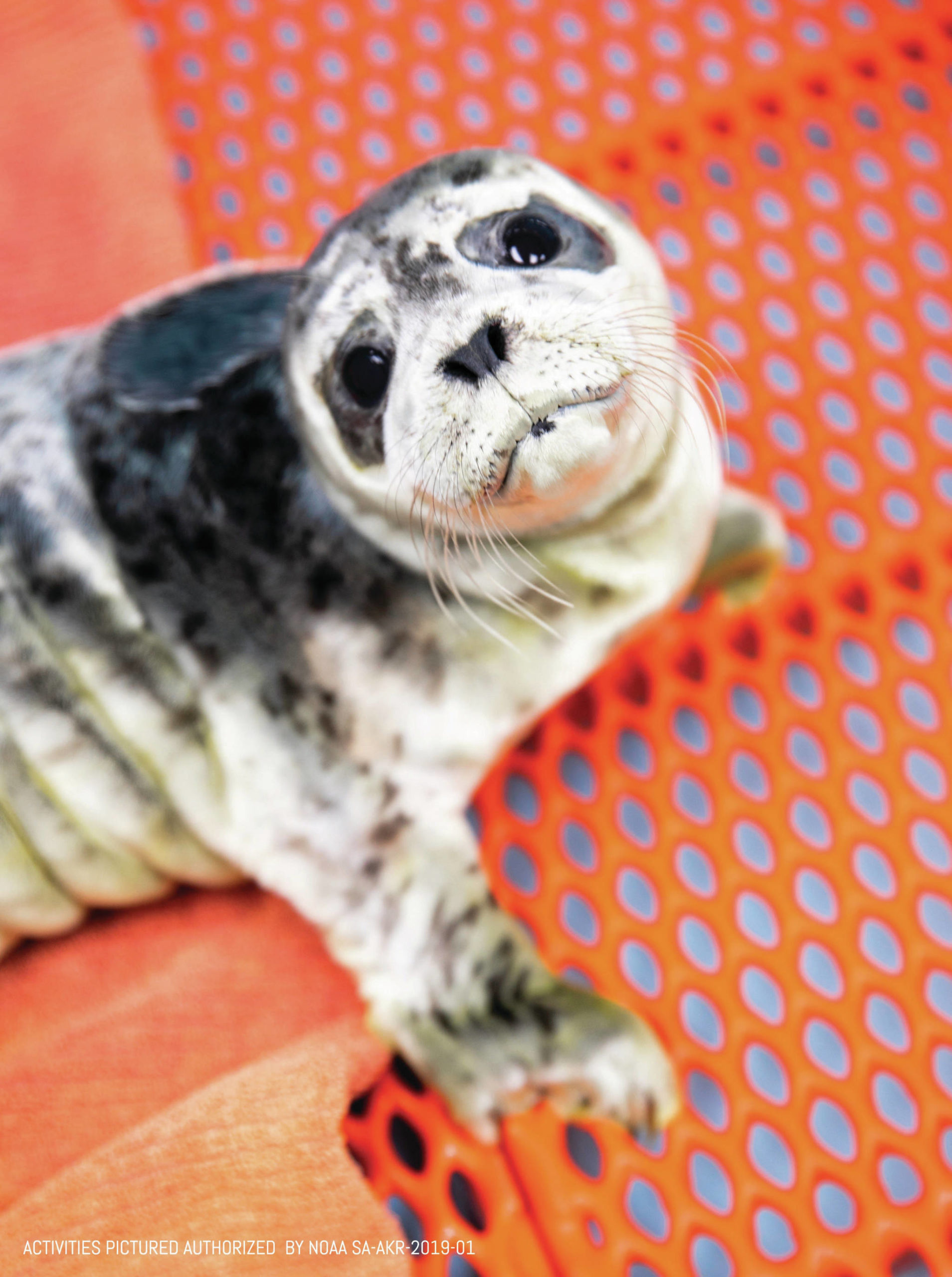The staff at the Alaska SeaLife Center in Seward have been busy this month taking care of the newest additions to the Wildlife Response Program — six harbor seal pups, all rescued in the first half of June, according to a Wednesday release from center.
Five of the pups, four females and one male, were found in the Cook Inlet area. The sixth is a male who was rescued in Juneau on June 15.
The pup from Juneau was picked up in the SeaLife Center’s new Wildlife Response van, which was recently donated by a number of the center’s corporate sponsors.
Wildlife Response curator Jane Belovarac said on Wednesday that this many rescues is not unheard-of for the SeaLife Center, which can see as many as 16 rescues in a year.
All of the seal pups arrived malnourished and dehydrated but did not have other significant injuries, according to the release. Belovarac said that the pups range in age from two weeks to one month and are all in similar stages of recovery. None of the pups have been named yet. Belovarac said that they usually wait until the animals regain a little more strength before giving them a name.
Due to COVID-19, the SeaLife Center has not hired summer interns and is not using volunteers, so the full-time members of the response team has their hands full taking care of the seal pups, as well as Zippy, an adult sea otter being treated for a bone infection after he was found in Seward with a zip tie around his wrist.
“Taking care of six young pups all needing to be tube-fed is a lot of hard work, especially with our reduced staffing, but it’s rewarding,” Dr. Carrie Goertz, director of animal health, said in the release. “We’ve adapted to COVID-19 restrictions by using staff from other departments instead of hiring seasonal interns and coming up with more efficient ways to manage animal care.”
Wildlife Response curators are treating the pups to increase their weight, boost their immune systems and teach them to fish. They will eventually release the seals back into the wild in the area where they were found. Belovarac said that they are being kept off-site, out of view of the guests, so that they can stay as wild as possible while they recover.
For more information, visit www.alaskasealife.org.
Reach reporter Brian Mazurek at bmazurek@peninsulaclarion.com.

